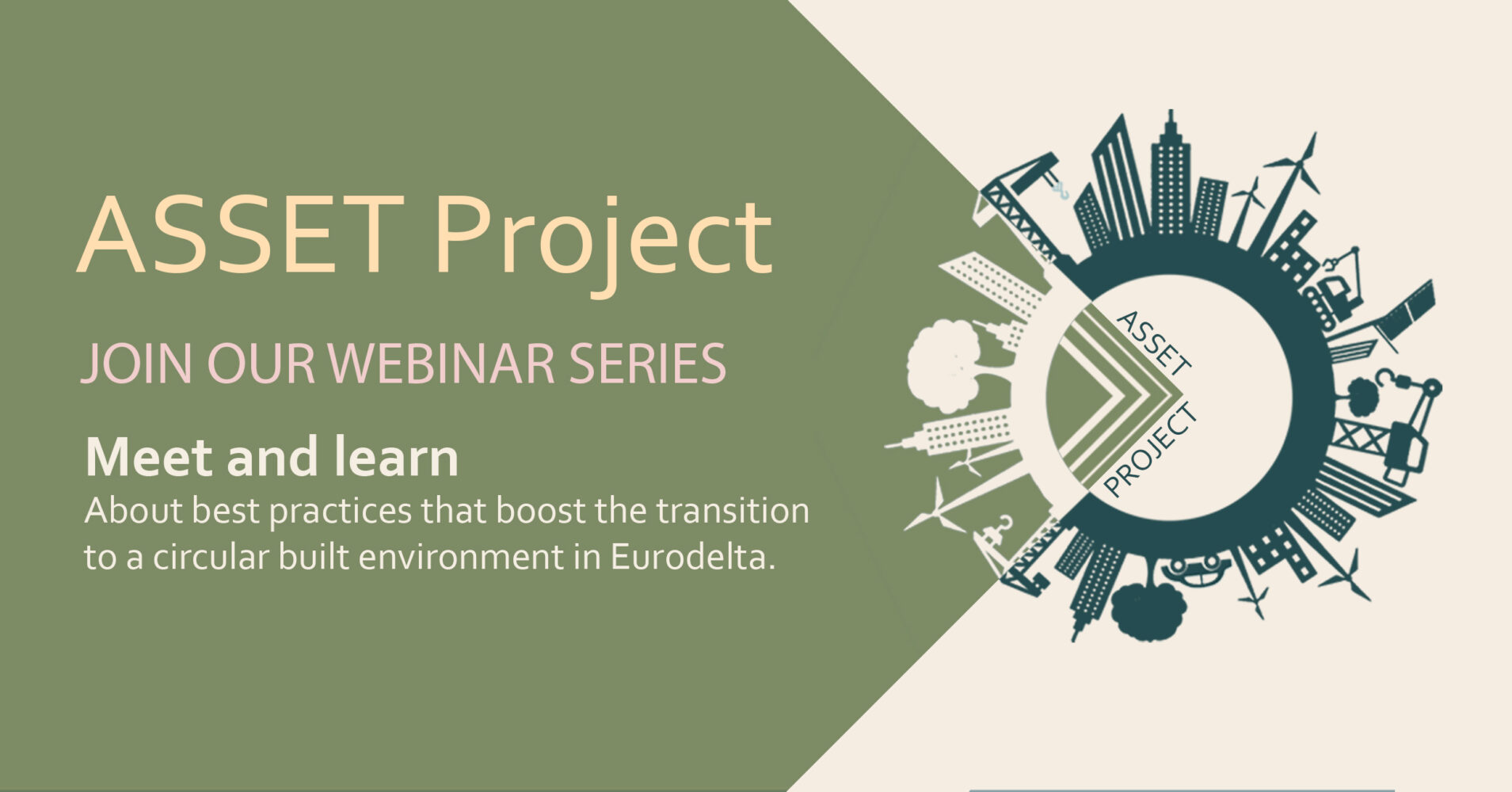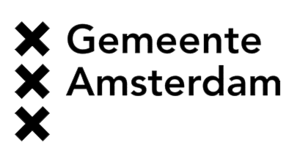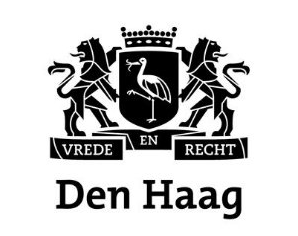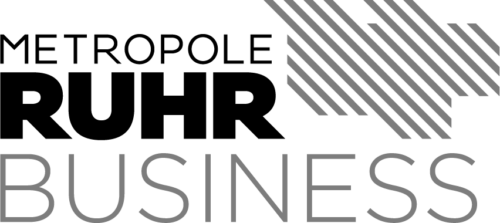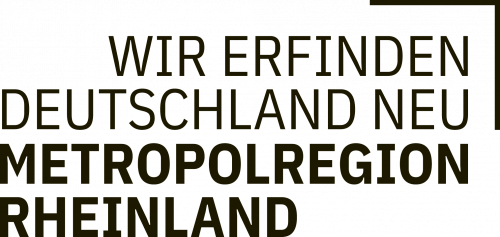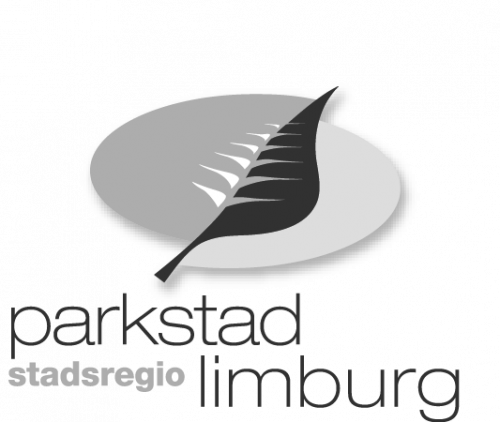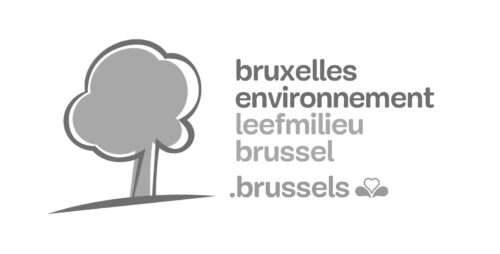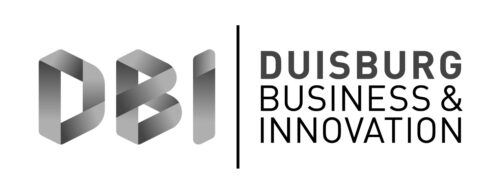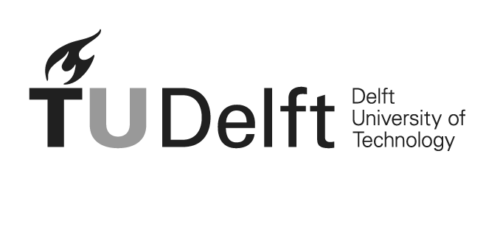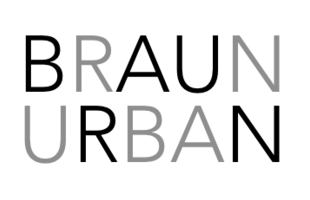ASSET Webinar: Meet & Learn #Circular building within the DGNB certification scheme for new buildings and the DGNB building resource passport
24 May - 2024 , Online via MS Teams
Download the Quality_Standard files
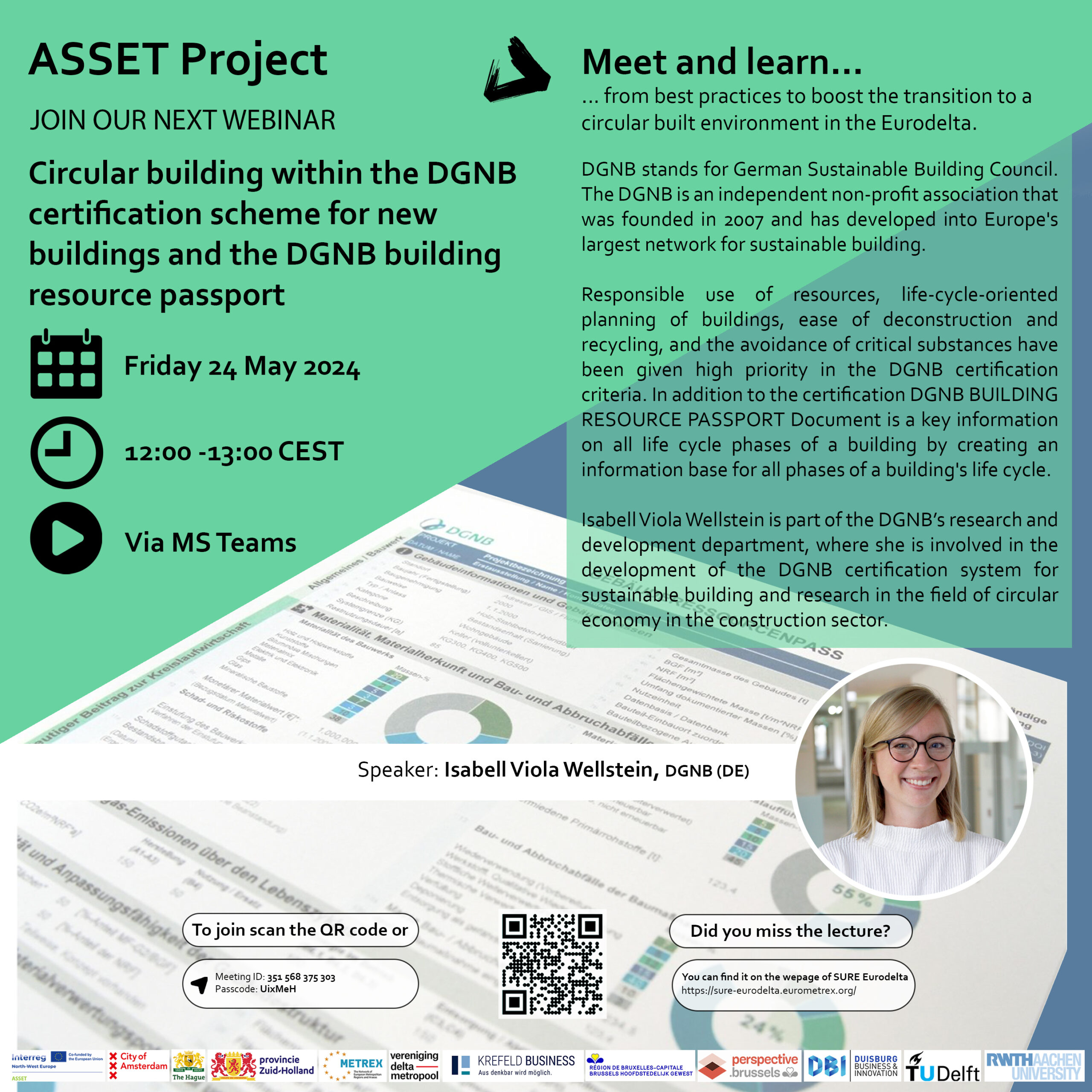
ASSET Webinar
Meet and Learn: Boosting the circular built environment in the Eurodelta
Experience the surge in demand for space within the Circular Built Environment (CBE)! Think vibrant circular building hubs, efficient storage for reclaimed materials, sorting facilities for reclaimed materials, and cutting-edge spaces for the development of bio-based materials—all clamoring for their place in our evolving landscape. This transition isn’t just about physical spaces; it’s about laying the groundwork for a sustainable future.
About Meet and Learn:
Join us for an enlightening series of 18 lectures, where the partners of the European Interreg project Asset will engage in interactive discussions, exploring the evolving spatial demands of this transformative movement. Discover inspiring best practices ready for widespread adoption and upscaling, paving the way for a greener, more efficient tomorrow! Our lineup of invited speakers is diverse, spanning various fields such as construction, logistics, port operations, freight transport, and spatial planning, representing both the private and public sectors.
About the lecture:
This ASSET meet and learn on Friday 24 May 2024 we have Isabell Viola Wellstein, DGNB Germany as our guest speaker.
DGNB stands for German Sustainable Building Council. The DGNB is an independent non-profit association that was founded in 2007 and has developed into Europe’s largest network for sustainable building.
Circular building is a core theme of the DGNB System. Since the first version of the DGNB System (2008), key aspects such as the responsible use of resources, life-cycle-oriented planning of buildings, ease of deconstruction and recycling, and the avoidance of critical substances have been given high priority in the certification criteria. Particularly advanced circular solutions also have a positive impact on the assessment result through bonus points for the “Circular economy”. In addition, reuse, recycling and the non-use of material resources lead to a better assessment of the CO2 and lifecycle assessment of buildings. Along with the certification our speaker Isabell will tell us about the basic concept of the Building Resource Passport which is based on the idea of the successfully established Energy Performance Certificate. The idea is that the resource passport should contain the essential information on resource use, climate impact and circularity for each individual building. In the long term, the Building Resource Passport creates the basis for a consistent circular economy in the building sector, in which all life cycle phases, from design to reuse or recycling, are perfectly coordinated and interconnected. This requires full transparency about the materials and components used, their value and ownership. It is the foundation for a new shared economy, new business models and a high quality built environment.
About the speaker:
Isabell Viola Wellstein has studied Civil Engineering with specialisation in structural building construction at the Technical University of Applied Sciences of Stuttgart. From 2014 to 2022 she worked as a structural engineer and project manager in an architectural and engineering office. There she planned and managed small to big building projects, a lot of them concerning existing building stock renovations and extensions. After working with the digital Building Information Modeling methodology over many years, she also became an official BIM manager in 2018. Since 2022 she is part of the DGNB’s research and development department, where she is involved, among other things, in the development of the DGNB certification system for sustainable building and research in the field of circular economy in the construction sector.
About Asset
ASSET, the visionary European Interreg project (‘A Spatial Strategy for the EuroDelta, boosting the circular transition of the built environment’), unites cities, regions, research agencies, and universities in a common quest for innovation. Together, we are accelerating the circular transition of the Eurodelta, harnessing the power of collaboration to carve out a sustainable future. At the heart of our discussions lies the pivotal issue of the Circular Transition—scaling up and seizing the collaborative opportunities to create the perfect spatial conditions for this revolutionary shift while minimizing land use. From individual buildings to the vast expanse of the Eurodelta, we’ll explore best practices that pave the way for a brighter, more sustainable future.
Partner:
Under the leadership of Amsterdam, a pioneer in circular transition, leading cities and regions such as Brussels, South Holland Province, Krefeld, Duisburg and The Hague join forces with the Association of Deltametropolis, RWTH Aachen, TU Delft, and the European network of metropolitan areas (Metrex). Moreover, over 40 private and public entities from across the Eurodelta have joined as associated partners.
About this event series:
The SURE Eurodelta explores the development of a spatial strategy for the Eurodelta. In this series of webinar we explore best practices to boost a circular built environment within Northwest Europe.
Become part of the Circular Delta Transition of the EURODELTA!
